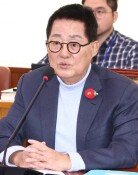Fed halts rate hike drive
Fed halts rate hike drive
Posted February. 01, 2019 07:42,
Updated February. 01, 2019 07:42
The U.S. Federal Reserve Bank has sent a strong signal that it may halt its interest rate increases, the three-year drive to tighten monetary policy is nearing an end. As the Federal Open Market Committee’s statement used the word “patient” for the first time in four years, analysts say that the Fed intends to pre-emptively quell fears over a recession.
The U.S. central bank on Wednesday (local time) also suggested that it is prepared to adjust how fast its bond holdings would decline. Fed Chairman Jerome Powell told reporters that the Fed’s asset shedding could end with larger asset holdings than expected. He added that the Fed’s future interest rate policy will depend on economic data, suggesting further rate changes in accordance with the U.S. economic situation.
The Fed’s decision reflected signs of a global economic slowdown. The International Monetary Fund lowered its global economic growth outlook from 3.7 percent to 3.5 percent. While job indexes were strong in the U.S., home transactions decreased. The European and Japanese central banks also kept their policy rates unchanged this month, continuing their monetary easing stance.
The Fed’s decision has eased burdens for the South Korean central bank, which has to worry about foreign capital outflow at every U.S. rate hike. Bank of Korea Governor Lee Ju-yeol told reporters on Thursday that the Fed was more dovish than the market expected, adding it will help stabilize the local financial markets.
However, the South Korean markets were largely unaffected by the Fed’s decision. On Thursday, the Korea Composite Stock Price Index, which had enjoyed a January rally due to strong purchases by foreign investors, edged down 0.06 percent to 2,204.85, while the tech-heavy Kosdaq index was up 0.22 percent to 716.86. “The Korean stock market is influenced more by a Chinese economic slowdown and corporate earnings than U.S. interest rates,” said Kim Hak-kyun, head of research at Shinyoung Securities Co. “However, the Fed’s decision will help maintain dollar liquidity in the global markets, causing demands for investment in Korea to increase.”
Although the Fed’s decision has removed one of the three major uncertainties in the global economy, the U.S.-China trade negotiations and Brexit are the destabilizing factors. High-level negotiators from the U.S. and China failed to narrow differences on Wednesday (local time) on the first day of their two-day talks.
British Prime Minister Theresa May is demanding Brexit renegotiations with the European Union, which remains negative. Some observers do not rule out the possibility of a “no deal” Brexit on March 29.
hykang@donga.com · parky@donga.com







